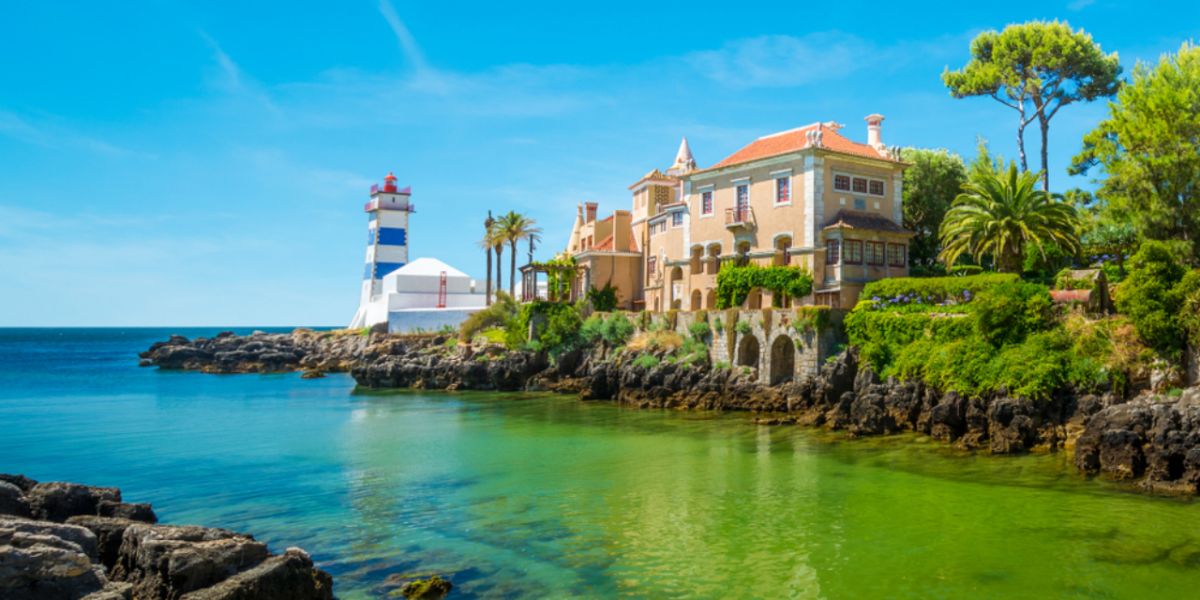
Moving to Portugal means adapting to a new lifestyle and a new working environment, but there are many opportunities to be found for expats in the country. Here is an overview of the country's labor market to help you build a career in Portugal.
The Portuguese economy has had its ups and downs in the past few decades, but is currently one of the fastest-growing in Europe, consistently growing above the continent's average. Needless to say, that means more opportunities for job-seekers. In recent years, the unemployment rate in Portugal has continued to fall, and, in the first quarter of 2025, it sat at around 6.6%.
This is great news for foreigners considering a move to Portugal, as many international companies are expanding or opening offices in the country, and new businesses continue to spring up. Expats are advised to start their job search in Lisbon, Portugal's capital city. It is the largest city in Portugal and offers the most opportunities for employment. Porto, the second-largest city, is also a popular choice for relocation.
The labor market in Portugal
Although a very substantial part of the economy is reliant on non-qualified, low-paying jobs – particularly in the tourism, agricultural and customer support industries – some areas offer above-average compensation, helping drive the quality of life in the country up. Much like the rest of the world, IT is a particularly appealing career path, as there are more and more international companies setting up their businesses in Portugal and continually looking for programmers, software and web developers, data analysts, network engineers, cloud architects, and more! Lisbon, in particular, is emerging as a destination for new companies in the fields of IT, tech, digital data management, and more. In fact, the current local executive has made it a priority to attract foreign investment and turn the Portuguese capital into the unofficial Silicon Valley of Europe (for example, the city plays host to the annual Web Summit).
Other growing fields include renewable energy (particularly solar and wind), logistics, transport and the food industry. Back to the more “traditional” high-paying fields, Law is always a safe bet, although practicing in Portugal requires lawyers to be enrolled in the Portuguese Bar Association, complete initial training in the country's legal system and pass an exam in Portuguese. On the other hand, requirements are a bit looser for doctors and other health specialists seeking to work in Portugal. Although speaking Portuguese is still a must, there is currently a high demand for doctors in both the public and private sectors. In fact, if applicants are willing to work for the Portuguese NHS (SNS) in rural areas, they may even be eligible for certain state-sponsored incentives, such as paid housing and monthly bonuses of up to 40% of their base salary.
Perhaps surprisingly, or not so much, the last couple of years have seen a spike in demand for manual labor. Jobs that used to be seen as menial, such as plumbers, electricians, painters or welders, rank now among the highest-paid in the country, especially for workers who run their own businesses. As there is a lot of demand for these services and not nearly enough supply, manual laborers can now get away with charging pretty much whatever they want. The same goes for contractors and construction companies, since public and private infrastructure projects, urban rehabilitation and civil construction are generating strong demand for civil engineers, skilled technicians and machine operators, among others. Furthermore, as the current executive seems committed to increasing housing supply in Portugal, demand for construction jobs and manual laborers is only expected to increase in the near future.
Finally, there is a lot of demand for work in the tourism and hospitality industry. Sadly, most job opportunities require workers to put in long hours for low wages, especially if you're starting as a bartender, a cook, a clerk or a waiter. Because working conditions are usually poor, teams are constantly changing and rotating, leading to a more hectic work environment and further difficulties in providing excellent service. As a result, morale is usually low. On the other hand, people can make a decent living if they're able to climb through the hierarchy and eventually lead a department or land a job in the back office.
International students in Portugal looking for part-time work may wish to consider the fields of tourism, retail, hospitality, or call center/marketing-based work.
How to find a job in Portugal?
Before applying for a job, it is important to prepare a detailed and updated resume. It is best to update your resume according to Portuguese norms so that you have the best chance of success. If in doubt, consider asking a Portuguese friend or colleague, or register with a recruitment agency, as both can provide input on how your resume should be prepared. Most popular recruitment agencies in Portugal include Randstad, Talenter, Kelly Services and Michael Page, among many others.
Once you have your CV and cover letter in order, you may register with the aforementioned recruitment agencies or actively try to find a job on your own. To do so, you can browse the country's most popular job portals, such as Net Empregos, Expresso Emprego, Portal Emprego and Sapo Emprego. Social media platforms such as LinkedIn are also a viable option.
Alternatively, it's also a good idea to update your professional social media, such as LinkedIn. Include all your latest work experience, expertise and achievements. You may also indicate in your profile that you are looking for career opportunities in Portugal and update your current location, which will make it easier for hiring managers in the country to find your profile.
Another way to go about your job search in Portugal is to send out your CV and cover letter directly to companies in your field of work and try a spontaneous application. Once you've narrowed down the list of companies you are interested in, you can go on to visit their websites, locate the Careers or Jobs sections, and see if there are any openings available that might suit you. Contacting a headhunting agency can also be of value. Once they have your information and know what you are looking for, they will keep your profile on file for any openings in your area of expertise.
Lastly, make sure to stay up to date on conferences, business events, workshops, summits or any other meeting - especially in your line of work! Networking can go a long way in Portugal, so this is definitely something to look out for!
Applying for a job in Portugal
Typically, a Portuguese CV is composed in chronological order and should be one or two pages long. Most CVs would also have a photo at the top of the page. Most CVs are divided into the following sections:
- Personal information (you can include your name and age, contact details, etc. )
- Education (the highest degree you have received, additional courses and certificates applicable to the job, foreign languages you speak, etc.).
- Working experience (describe the positions you've held prior to the application, starting from the latest one. Include information on your title, responsibilities, key achievements, etc.)
- Other interests and hobbies (it is quite common to sum up the resume with a quick note about things you like to do outside of work. This could be the sports you are into, books and arts you are interested in, etc.). It is a good idea to include activities here that will be well-received by your potential employer and can be complementary to the position you are applying for.
In Portugal, CVs tend to focus on professional expertise and qualifications. A few years back, it wasn't particularly common to include personal goals and aspirations (as it is in American CVs), but job-seekers have come to understand that having a resume that stands out makes a huge difference in how companies see applicants.
Do not stick to a run-of-the-mill Europass CV. Choose a more appropriate layout that either serves as an extension of your personality or is more appropriate to the field of work you are applying to. If you're not particularly versed in design tools, try using online resources when composing your CV. There are lots of templates and layouts for planning out and formatting your resume, most of which are free to use. Try to avoid irrelevant information or work experience, and do not make it too long. Companies typically prefer applicants who go straight to the point. You may also add relevant information about goals you have accomplished in your previous job postings. Needless to say, always proofread your CV to make sure there are no grammatical errors.
In addition to a CV, a lot of job applications will also ask for a cover letter. A cover letter is typically under one page and is basically a way to sum up your skills and explain why you are a good fit for the position you are applying for, sort of like an introduction to your resume.
Preparing for a job interview in Portugal
If you're lucky enough to be called for a job interview, stay calm and prepare accordingly. Preparing for a job interview in Portugal isn't all that different from anywhere else. Present yourself in a clean, tidy manner – first impressions are important! Be ready to describe your background and work experience, explain why you are applying for the said job, and maybe answer a few technical questions related to the work. The recruiter may also dig in to try to find out how you deal with stress and how you feel about working as part of a team. If you've taken a gap year or are applying for multiple jobs at once, be ready to be asked about that.
Ultimately, it is also very important to do your homework. The recruiter may try to surprise you by asking specific questions about the company – either about its history/foundation, line of work, culture, or recent results – or the role you are applying to. Show that you care by doing some research beforehand. Equally important is to try to build rapport with the interviewer. Ask questions back, use positive language, and stay friendly while keeping respectful. Last, but certainly not least, be on time! Nothing ruins a first impression quite like being late… even in a country that isn't exactly known for its punctuality!
Formalities for working in Portugal
If you are a citizen of an EU/EEA member state, you can work in Portugal without a visa or a work permit. However, if you plan to stay in the country for a period longer than 3 months and shorter than 5 years, you will need to apply for a Registration Certificate. This is the document that serves as a residency permit for EU/EEA nationals staying in Portugal. You can apply for this certificate at your local city council. Typically, these are the required documents:
A valid form of ID (passport, travel ID, etc.);
Written declaration of commitment in which the applicant claims one of the following:
- They work for a Portugal-based company or are self-employed.
- They have health insurance and sufficient funds to support themselves and their family throughout their stay.
- They study in a public or private education institution in Portugal and have sufficient funds to support themselves and their family throughout their stay;
- They are moving into the country to reunite with a family member who abides by one of the aforementioned clauses (in this case, you'll need a document that proves you're both related).
Citizens of non-EU/EEA countries will need a visa to enter Portugal (even for a period of less than three months) — unless they come from one of the 61 countries that have an agreement with Portugal that allows their citizens to visit Portugal visa-free. Among others, these countries include the United States, the United Kingdom, Canada, Australia, Japan, etc.
Check with your local Portuguese consulate or embassy whether you need a visa to visit Portugal.
Note that even if you don't need a visa for a short stay in Portugal, you will still need to apply for a long-term visa or residence permit if you plan to work in the country and stay for over three months. Unlike EU/EEA nationals, you will need to apply for such a visa/residence permit BEFORE arriving in Portugal. The type of visa will depend on the nature of your work and/or contract arrangements.
Working conditions in Portugal
Work hours and paid time off
Workers generally work a 40-hour work week, with 22 days per year of paid time off. According to work legislation, every worker must take at least one period of 10 consecutive days of paid time off (2 weeks) every year. Some companies may offer extra PTO as an incentive (between 25 and 30 days in total).
Portugal also has an average of 12 to 15 public holidays every year. Unlike what you may be used to in some Saxon countries, if a bank holiday takes place on a weekend (or in one of your off-days), you cannot move it to a Friday or Monday. You just “lose” it.
Remote work
Ever since the pandemic, there has been an effort to promote remote work as a perk in some companies. Although fully remote jobs are hard to come by, a lot of companies are currently offering the possibility for employees to work from home 1 or 2 days/week as a way to enhance work-life balance.
Retirement
The retirement age in Portugal is 66 years and 9 months. However, workers may choose to retire early or to continue working past the retirement age. If they choose to retire early, they'll be penalized with a monthly cut in their pension called “Sustainability Factor”. In 2025, that cut stands at 16.93%, plus 0.5% per month for the difference between the worker's actual retirement age and the government's official retirement age. In Portugal, you are legally authorized to work from the age of 16.
Wages
In 2025, the minimum wage in the country stands at 870€, with the planned goal to increase it by 50€ every year until 2028 (1,020€). Although the minimum wage has been growing steadily over the past decade or so (in 2015, it stood at just 505€), the rampant cost of living hasn't allowed purchasing power to improve. This is particularly relevant for housing prices, which have tripled in the same 10-year period.
When you work in Portugal, you receive 14 full month's salaries a year: one for every month + one Christmas subsidy (paid in December) + one Holiday allowance (paid in either July or when the worker takes their mandatory 2-week off period). Along with the base salary, workers must also be paid a daily food allowance. In 2025, that allowance must be at least 6,00€ per day of work, although most private companies pay between 8€ to 10€ per day. If the food allowance is paid through a special meal voucher, that subsidy is tax-free up to 10,20€/day. On the other hand, the voucher (a payment card) can only be used for purchases in restaurants and supermarkets.
According to the National Institute for Statistics, the average wage in Portugal currently stands at 1,602€, which includes the base salary, daily food allowance benefits and any overtime payments. This represents a 36.5% increase over the past decade.
We do our best to provide accurate and up to date information. However, if you have noticed any inaccuracies in this article, please let us know in the comments section below.








